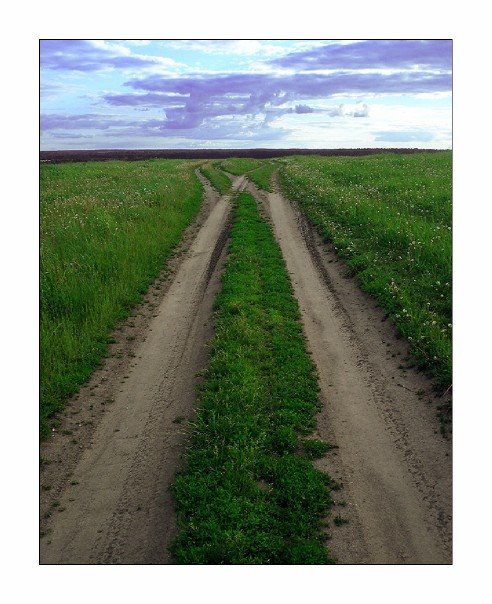Putin Gets Mandate as His Party Sweeps Russian Vote
By Henry Meyer and Sebastian Alison
Dec. 3 (Bloomberg) -- President Vladimir Putin's party swept parliamentary elections, partial results showed, giving him the mandate he sought to keep guiding Russia after he leaves office next year.
The Central Election Commission said, with 38 percent of yesterday's vote counted, United Russia had 63.1 percent and two other pro-Kremlin parties a combined 17 percent -- handing them more than four-fifths of the seats in the State Duma. Turnout was above 60 percent, higher than in 2003. Opposition parties complained of unprecedented vote-rigging.
Putin, 55, who cannot run in March 2 presidential elections because of a ban on three consecutive terms, had called for Russians to vote in large numbers for his party, saying this would give him the ``moral right'' to retain a leading role. He has yet to reveal what that will be.
``Sixty-sixty does achieve the objective: to substantiate Putin's popularity and position,'' Chris Weafer, chief strategist at UralSib Financial Corp. in Moscow, said in a telephone interview. ``He can now pretty much choose what position he wants going forward.''
Investors have welcomed the prospect of a continuation of the president's policies. Russia's economy has expanded nearly 7 percent a year since Putin was first elected in 2000, fueled by high energy prices, and the value of Russian stocks has grown by $1 trillion.
`Continue to Dominate'
``Although Mr. Putin is leaving office, his influence and approach and a team of like-minded colleagues will continue to dominate Russia's political structures and manage its macroeconomy regardless of who is elected president next year,'' Moody's Investors Service Vice President Jonathan Schiffer said in an e-mailed comment.
The partial results gave the opposition Communist Party second place with 11.5 percent. Two other parties that support Putin also were on course to clear the 7 percent barrier required to enter the lower house of parliament. The Liberal Democratic Party of Russia had 9.4 percent and Fair Russia 7.6 percent. Two small pro-democracy parties failed to win seats. The vote should be mostly counted by 10 a.m. Moscow time.
United Russia's chairman, Boris Gryzlov, said the elections ``were effectively a referendum'' on Putin and that the president ``won in the first round.''
``Putin will consider this result a victory,'' Olga Kryshtanovskaya, a political analyst at the Russian Academy of Sciences in Moscow, said in a telephone interview. ``I am sure he will manage to maintain his power.''
Duma Seats
United Russia and its allies would have almost 400 of the 450 Duma seats, based on the early results, with the Communists holding the remainder.
Opposition parties alleged that the state used its resources to rig the result in favor of United Russia. Communist leader Gennady Zyuganov denounced unparalleled ``administrative pressure,'' describing the elections as ``not democratic, not fair and not free.'' His party plans to contest the results in the Supreme Court.
According to Russian nongovernmental organization Golos, which receives U.S. government funding, the authorities put pressure on state employees to obtain absentee ballots, so that they could vote at work under official supervision, ``to artificially boost turnout'' and United Russia's share of the vote.
Election Observers
The main election-monitoring arm of the Organization for Security and Cooperation in Europe, the continent's leading rights and democracy watchdog, abandoned plans to observe the vote, citing ``unprecedented restrictions.'' Only a 70-strong European parliamentary observer mission monitored the election. It will announce its findings later today.
Putin, who stepped up anti-Western rhetoric during the campaign, warning of the danger of ``jackals'' backed by foreign powers taking control, accused the U.S. of advising the international observers to stay away.
The Bush administration called on Russian authorities to investigate reports of election-day irregularities.
``We expressed our concern regarding the use of state administrative resources in support of United Russia, the bias of the state-owned or influenced media in favor of United Russia, intimidation of political opposition, and the lack of equal opportunity encountered by opposition candidates and parties,'' White House spokesman Gordon Johndroe said in an e-mailed statement. ``We also regret that limitations Russia imposed on election monitors prevented OSCE's ODIHR from fielding an election monitoring mission.''
OSCE Absence
German Chancellor Angela Merkel said in an interview with Deutschlandfunk radio broadcast yesterday that she regretted the absence of OSCE observers and had told Putin of the importance of a multiparty system.
The Russian leader, who headed United Russia's list of candidates for the Duma, hasn't endorsed any candidate to replace him as president. Pollsters say that any politician who gets Putin's blessing will win.
Moscow Mayor Yury Luzhkov, a co-chairman of United Russia, said the party could announce its presidential candidate as early as Dec. 17, the Interfax news service reported.
Analysts say that among potential successors to Putin are First Deputy Prime Ministers Sergei Ivanov, 54, and Dmitry Medvedev, 41, and Prime Minister Viktor Zubkov, 66. Candidates must come forward by Dec. 23.
Subscribe to:
Post Comments (Atom)

No comments:
Post a Comment